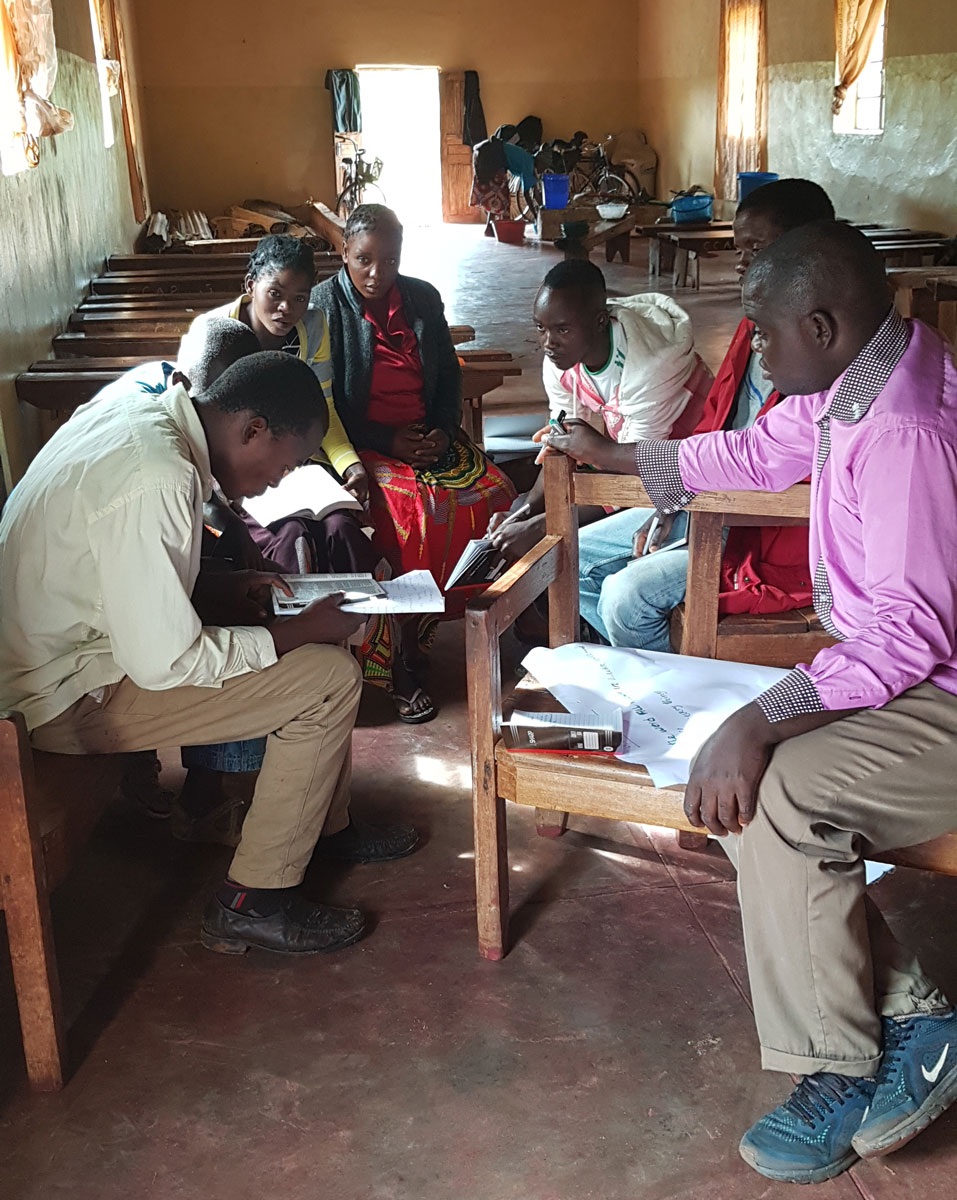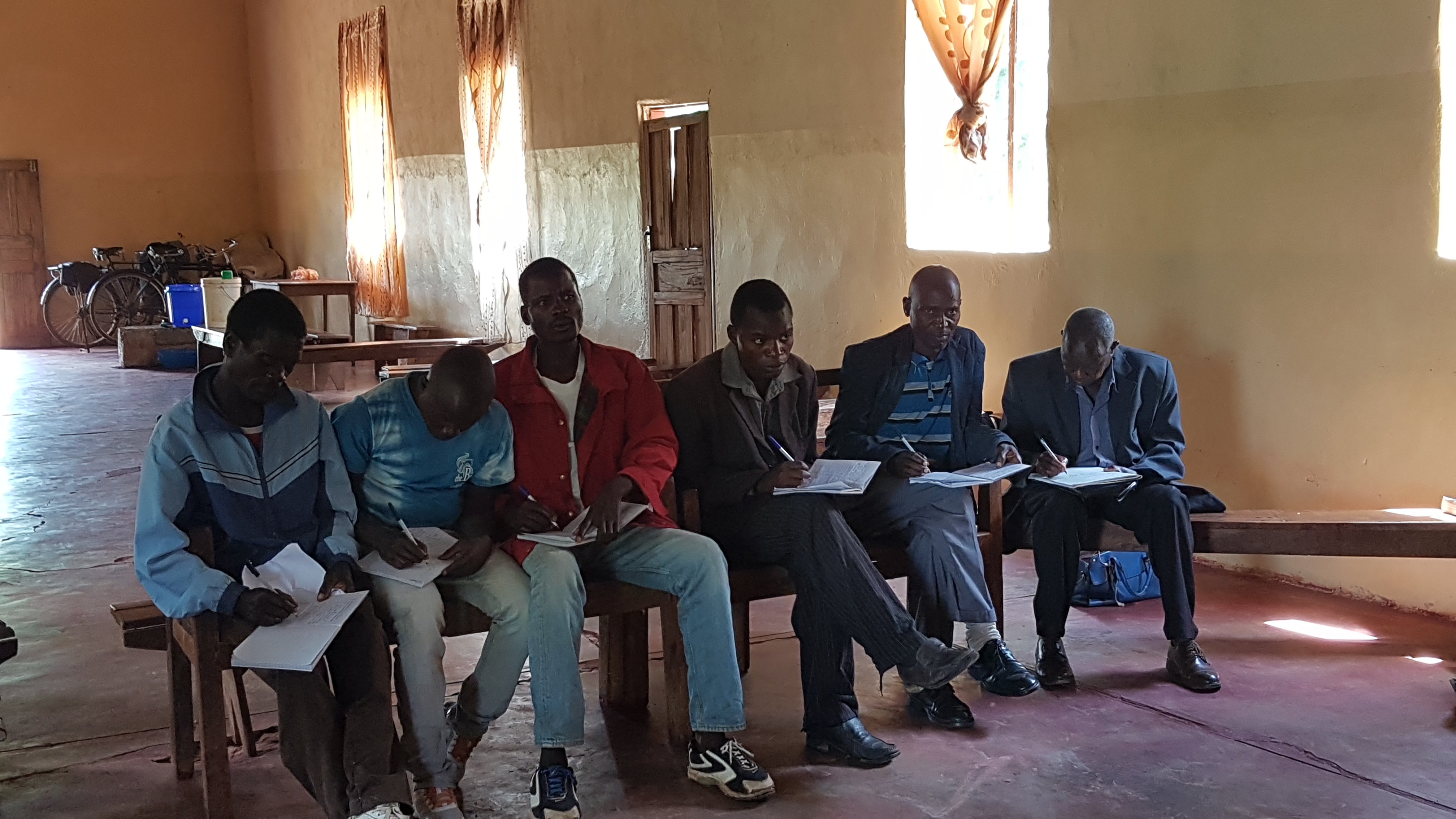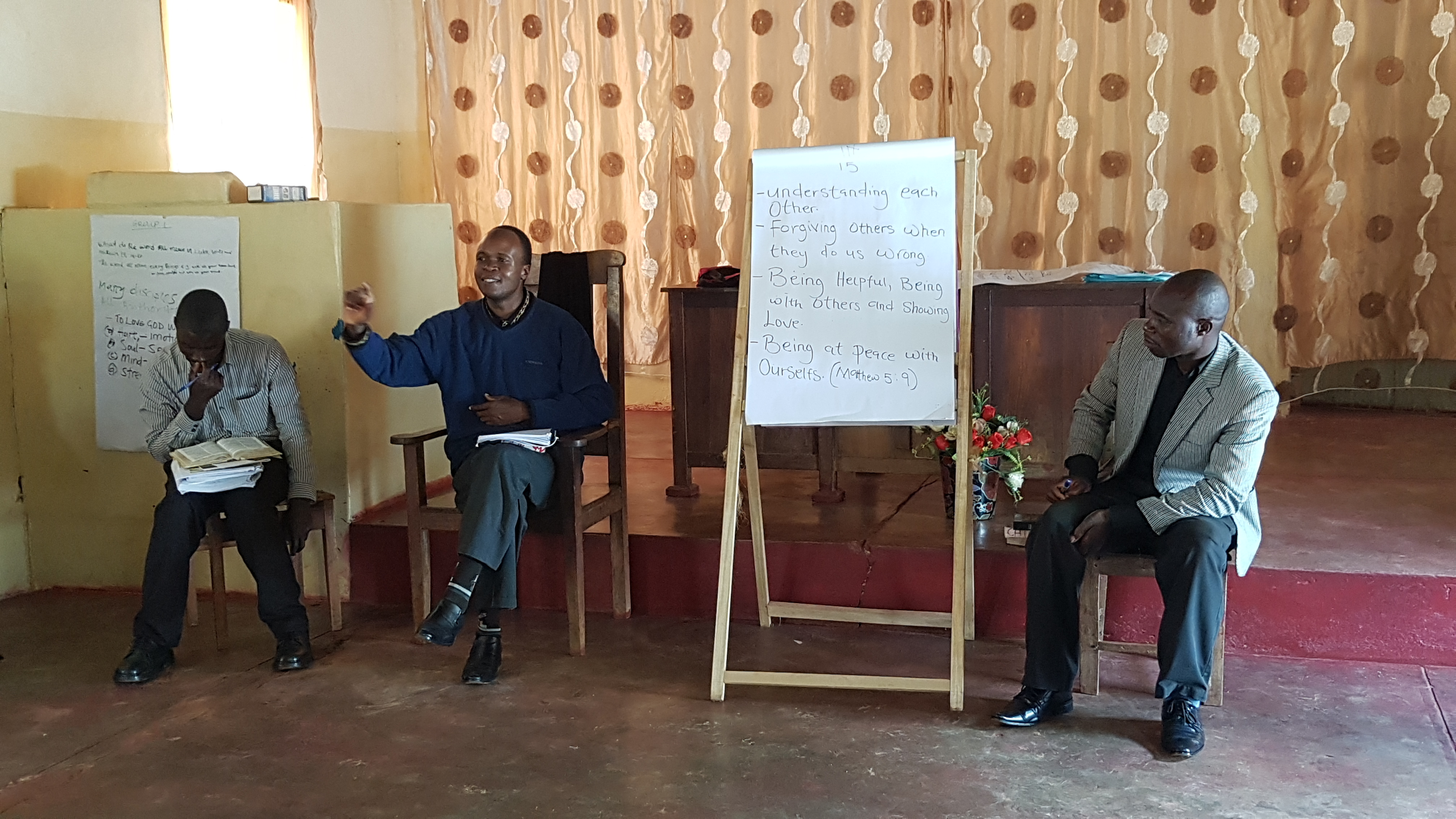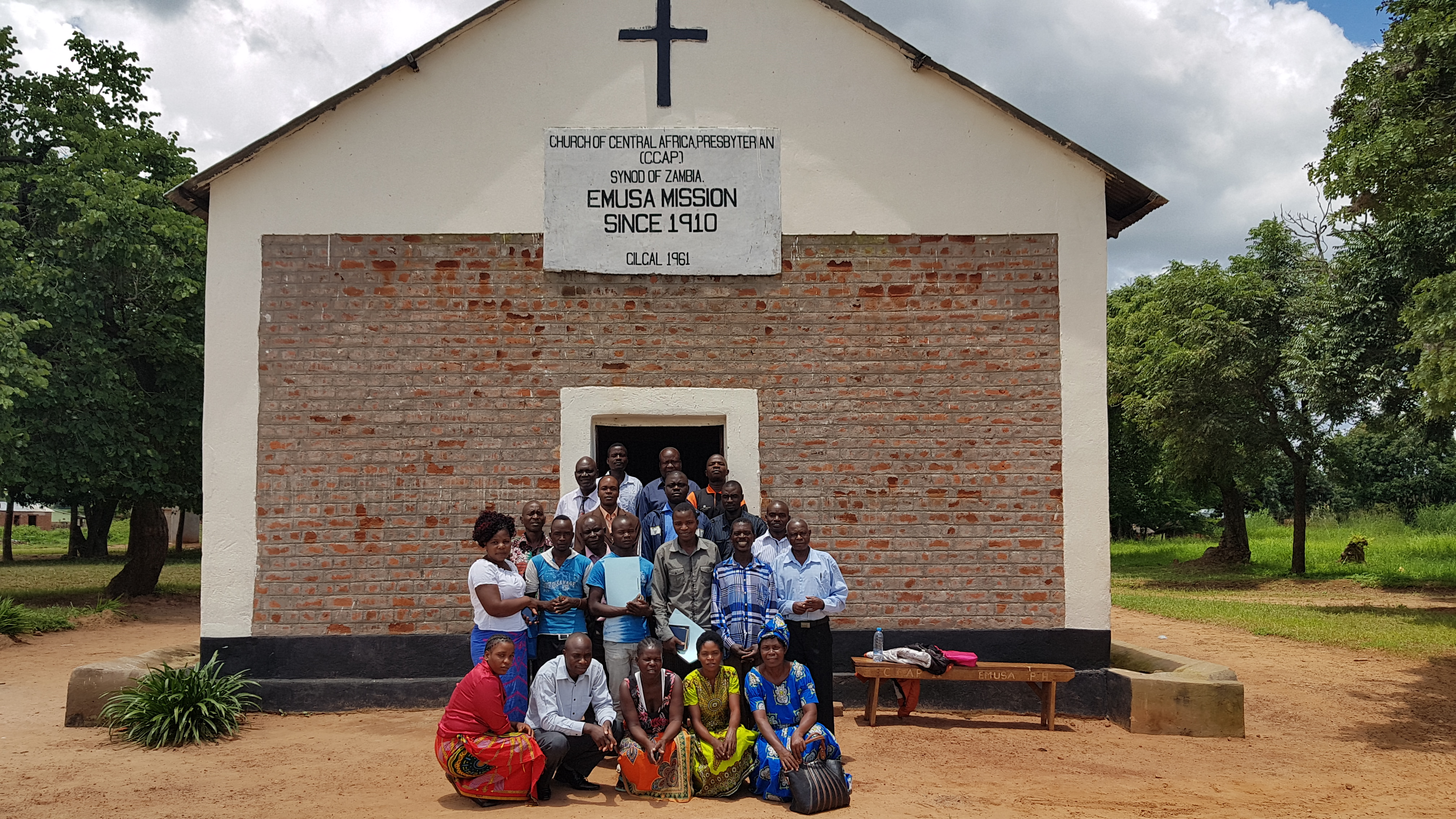A Letter from Luta and Jeremy Garbat-Welch, serving in Malawi
May 2018
Write: Jeremy Garbat-Welch
Write: Luta Garbat-Welch
Individuals: Give online to E200515 for Jeremy and Luta Garbat-Welch’s sending and support
Congregations: Give to D507577 for Jeremy and Luta Garbat-Welch’s sending and support
Churches are asked to send donations through your congregation’s normal receiving site (this is usually your presbytery).
Dear Brothers and Sisters in Christ,
“Last year, I harvested 105 bags of maize. Should I still look for people to feed me?” Reverend Lazarus Chilenje exclaimed as he discussed manse visits during a Community Health Evangelism (CHE) Home Visitor Training held in Emusa, Zambia, in March. Rev. Chilenje shared with us that he told his congregants, “You have a lot of your own worries. Between January and April, as the reverend I am saying don’t visit the manse.”
Manse visitation is a part of the life of the church within the Church of Central Africa Presbyterian (CCAP). Each month, one of the prayer houses under a reverend is assigned the manse visitation. During this visit, the congregation is expected to bring food (especially staple foods) to meet the needs of the reverend’s family as well as any guests to whom the reverend may offer hospitality during the course of the month. At the congregational level, turns are often taken by zones (defined areas based on where people in the congregation live) within the church. Manse visits are seen as a part of congregations’ responsibility for caring for the pastor. Often, the expectation of manse visits can be difficult for congregants, especially in poorer rural settings as they struggle to meet the needs of their own families.
Maize is the staple food in Zambia and is used to make nshima, a firm cornmeal porridge. On average, an adult eats 6 bags of maize per year. A family of 6 would need anywhere from 27–36 bags for the year. One hundred and five bags (equal to 5250 kgs) is enough for Rev. Chilenje to provide staple food for his family, to sell the surplus to buy ndiwo (side dishes), and to pay for school fees for his children. Yet, the expectation of many pastors would be that these manse visits must continue, that the church is responsible for feeding the pastor.
Rev. Chilenje continued to share with the CHE home visitors — those who visit their neighbors and provide one-on-one education — being trained how the principles of CHE have affected his life outside of just project implementation. As a CHE trainer himself, Rev. Chilenje works to model the principles of CHE in his own life and in the life of his congregation. He teaches his congregation to use locally available resources and to be creative in finding solutions to their problems. He wants to “bring CHE into the minds of people.” As an example, he shared that the Emusa church building was built in 1961. From 1961 until 2012, no repairs or renovations were done on the building. When he became the reverend in 2012, he encouraged the congregants to see what could be done with what they have to improve the church building. Using congregants’ own resources, the roof has been fixed and beautiful curtains have been made to beautify the interior. Rev. Chilenje said, “in CHE, we are not cats, always begging for sympathy.”
In 2017, Rev. Chilenje put a hold on manse visits from January through April, a notoriously difficult time for families as they recover from the higher financial requirements of Christmas and when school fees are due. It is in the middle of the hunger season, as last year’s maize supplies wane and the current year’s harvest is not yet ready. This year, Rev. Chilenje has discontinued manse visits for the whole year. He wants the manse visits to happen at a family level, not a prayer house level. He states, “people are being forced to give; they are giving with bleeding hearts. I would rather that a husband and wife make a decision to visit with me, enjoying the time to be together. If they have extra cassava and see I have none, to share their bounty out of their own desire. I don’t want to be a burden to people.”
As I listened to Rev. Chilenje share with the CHE home visitors these changes that are happening within his congregation, I couldn’t help but be encouraged. CHE as a program does have a process to follow; there are guidelines for what steps to take when. However, the foundation of CHE is a mindset change from one of lack to one of abundance; from waiting for help to taking initiative; and from expecting others to save your community to being a part of change in your community. Rev. Chilenje has taken the principles of CHE to heart. As a CHE trainer, and as a reverend, he is a model for the community. When he is discussing the importance of having a pit latrine with a cover, he can take the trainees to his own pit latrine to see.
Although most of the CHE home visitors participating in the March CHE Home Visitor Training are from other congregations in villages around the area, I overheard several conversations where individuals remarked on what a man of God Rev. Chilenje is and how he is respected by all. According to church tradition, Rev. Chilenje could take this respect and demand support, but he uses what he has learned to challenge church tradition and lift up those around him by encouraging them to see their own abilities.
The CCAP Synod of Zambia has been working on implementing CHE for many years now, and there have been several significant bumps in the road. But finally in 2018, we are seeing CHE home visitors — the final component — being trained, and transformation in communities is beginning to take shape. What a privilege to see CHE move forward in Zambia, and to see how the principles of CHE are applied in a wider context.
We are eager to share more with you about the work of our partner church, the CCAP, when we are in the U.S.A. this summer. Hopefully you also will be encouraged by how God works both through and outside our processes. Thank you for joining us in witnessing God’s work in Africa.
In God’s grace,
Luta (for the Garbat-Welches)
![]() You may freely reuse and distribute this article in its entirety for non-commercial purposes in any medium. Please include author attribution, photography credits, and a link to the original article. This work is licensed under a Creative Commons Attribution-NonCommercial-NoDeratives 4.0 International License.
You may freely reuse and distribute this article in its entirety for non-commercial purposes in any medium. Please include author attribution, photography credits, and a link to the original article. This work is licensed under a Creative Commons Attribution-NonCommercial-NoDeratives 4.0 International License.



